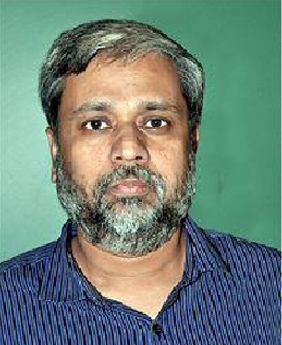Week 1: Module One: CONCEPT GENERATION
(A) Structured Design - Axiomatic Design,
(B) Algorithmic Design -- Intuitive Bias, Synectics and Systematic Search using TRIZ
Week 2: Module One: CONCEPT GENERATION
(A) Structured Design - Axiomatic Design,
(B) Algorithmic Design -- Intuitive Bias, Synectics and Systematic Search using TRIZ (Cont,..)
Week 3: Module Two: PRODUCT DETAILING
(A) Material Selection for Mechanical and Aesthetic Design
Mechanical Design – Material indices, Design of Everyday systems with case studies
Aesthetic Design – Description of structural materials based on Aesthetic parameters like form, colour, texture, hardness etc.
(B) Embodiment Design
Structural Design – Design of Tension and Compression
Structures, Balanced Tensegrity structures, Deployable Structures
Mechanism Design – Design of Mechanisms for Force and Motion Transfer
(C) Sensors and Actuators
Sensors – Basic sensors – positional and directional sensors, temperature sensors, humidity sensors, smart sensors, embedding sensors in products
.Actuators – Basic actuators – electromagnetic, electro-hydraulic and electro-pneumatic actuators, smart distributed actuators.
Week 4: Module Two: PRODUCT DETAILING(Cont,..)
(A) Material Selection for Mechanical and Aesthetic Design
Mechanical Design – Material indices, Design of Everyday systems with case studies
Aesthetic Design – Description of structural materials based on Aesthetic parameters like form, colour, texture, hardness etc.
(B) Embodiment Design
Structural Design – Design of Tension and Compression
Structures, Balanced Tensegrity structures, Deployable Structures
Mechanism Design – Design of Mechanisms for Force and Motion Transfer
(C) Sensors and Actuators
Sensors – Basic sensors – positional and directional sensors, temperature sensors, humidity sensors, smart sensors, embedding sensors in products
.Actuators – Basic actuators – electromagnetic, electro-hydraulic and electro-pneumatic actuators, smart distributed actuators.
Week 5: Module Two: PRODUCT DETAILING(Cont,..)
(A) Material Selection for Mechanical and Aesthetic Design
Mechanical Design – Material indices, Design of Everyday systems with case studies
Aesthetic Design – Description of structural materials based on Aesthetic parameters like form, colour, texture, hardness etc.
(B) Embodiment Design
Structural Design – Design of Tension and Compression
Structures, Balanced Tensegrity structures, Deployable Structures
Mechanism Design – Design of Mechanisms for Force and Motion Transfer
(C) Sensors and Actuators
Sensors – Basic sensors – positional and directional sensors, temperature sensors, humidity sensors, smart sensors, embedding sensors in products
.Actuators – Basic actuators – electromagnetic, electro-hydraulic and electro-pneumatic actuators, smart distributed actuators.
Week 6: Module Two: PRODUCT DETAILING(Cont,..)
(A) Material Selection for Mechanical and Aesthetic Design
Mechanical Design – Material indices, Design of Everyday systems with case studies
Aesthetic Design – Description of structural materials based on Aesthetic parameters like form, colour, texture, hardness etc.
(B) Embodiment Design
Structural Design – Design of Tension and Compression
Structures, Balanced Tensegrity structures, Deployable Structures
Mechanism Design – Design of Mechanisms for Force and Motion Transfer
(C) Sensors and Actuators
Sensors – Basic sensors – positional and directional sensors, temperature sensors, humidity sensors, smart sensors, embedding sensors in products
.Actuators – Basic actuators – electromagnetic, electro-hydraulic and electro-pneumatic actuators, smart distributed actuators.
Week 7: Module Three: Design Inspired by Nature
Introduction
Inspirations in the Functional Domain
Inspirations from the Evolution Domain
Sustainability Domain
Week 8: Module Four: Six Case Studies related to the Design of Automobile Components, Aerospace Applications and Medical Devices

DOWNLOAD APP
FOLLOW US